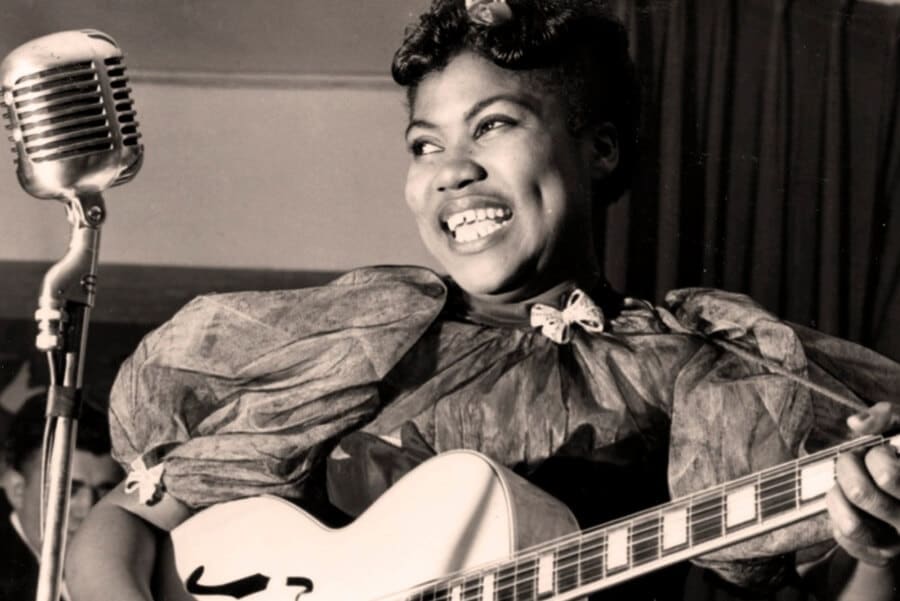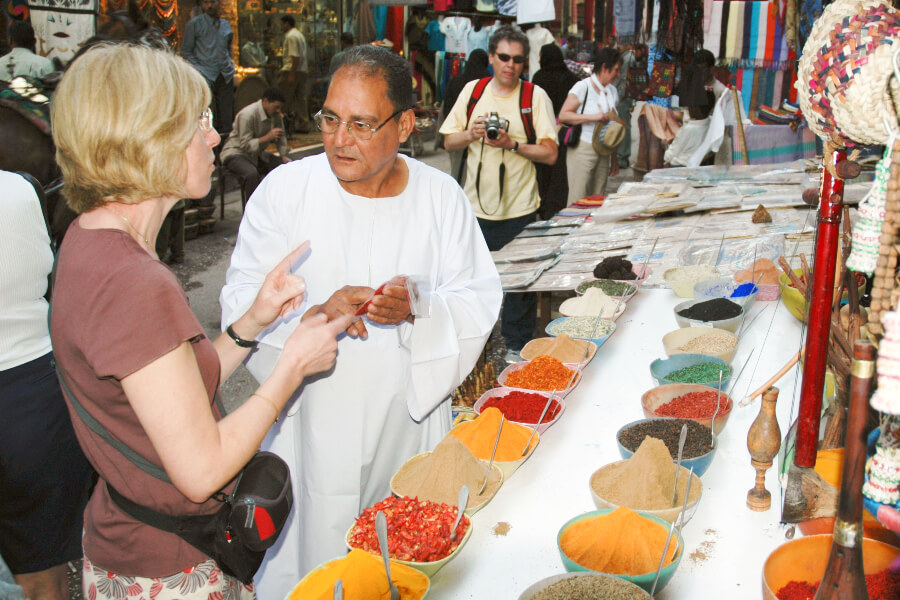Elvis idolized her. She’s influenced everyone from Chuck Berry to Bob Dylan to Miranda Lambert. And maybe the Beatles and the Rolling Stones too. But it’s highly likely you don’t know her name: Sister Rosetta Tharpe.
With her astonishing guitar work driving an irresistible beat and her hip-swiveling, star swagger, she forged a classic sound and attitude that would earn her the nickname, “The Godmother of Rock and Roll.”
Tharpe, whose career as a musical sensation began almost 100 years ago, was inducted into the Rock & Roll Hall of Fame in 2018, and some believe this honor was shockingly belated.
“No artist has been more overdue for recognition than Sister Rosetta Tharpe,” wrote Will Hermes in Rolling Stone after her nomination was announced. “A queer black woman from Arkansas who shredded on electric guitar, belted praises both to God and secular pleasures, and broke the color line touring with white singers, she was gospel’s first superstar, and she most assuredly rocked.”
Read More: Ida B. Wells: A Nod of Respect to the Prototypical Bad-Ass
Gospel Roots
Born in Cotton Plant, Arkansas in 1915, Tharpe was singing gospel music with her mother by the age of six. After moving to Chicago and then New York City, she performed with Duke Ellington and other prominent bands. As she matured, she began fusing Delta blues, New Orleans jazz, and gospel music into what would become her signature style.
On her first hit, a transformed spiritual entitled “Rock Me” in 1938, you can hear her hold soaring notes and make sexy growls. A later hit in 1945, the single “Strange Things Happening Every Day,” was known for its guitar solo and was the first gospel single to cross over on the Billboard race charts.
Love and Rapture
Eventually she teamed up with singer Marie Knight, both professionally and romantically, but later married for the third time in a grand ceremony in a Washington D.C. stadium that drew 25,000 fans.
In the early 60s, she toured England, capitalizing on the renewed interest in folk music. “I’m sure there are a lot of young English guys who picked up electric guitars after getting a look at her,” Bob Dylan once said.
But from there her career sadly waned. Her last known recording was in 1970, for Danish TV, singing the Thomas Dorsey gospel standard “Take My Hand, Precious Lord.”
Musicians everywhere owe a debt to Sister Rosetta Tharpe, whether they know it or not. As Hermes wrote in Rolling Stone, “The spirit of Sister Rosetta Tharpe is conjured every time a rock musician plugs in and aims for rapture.”
Read More: Karen Gray Houston Carries on Her Family’s Civil Rights Legacy





















0 Comments